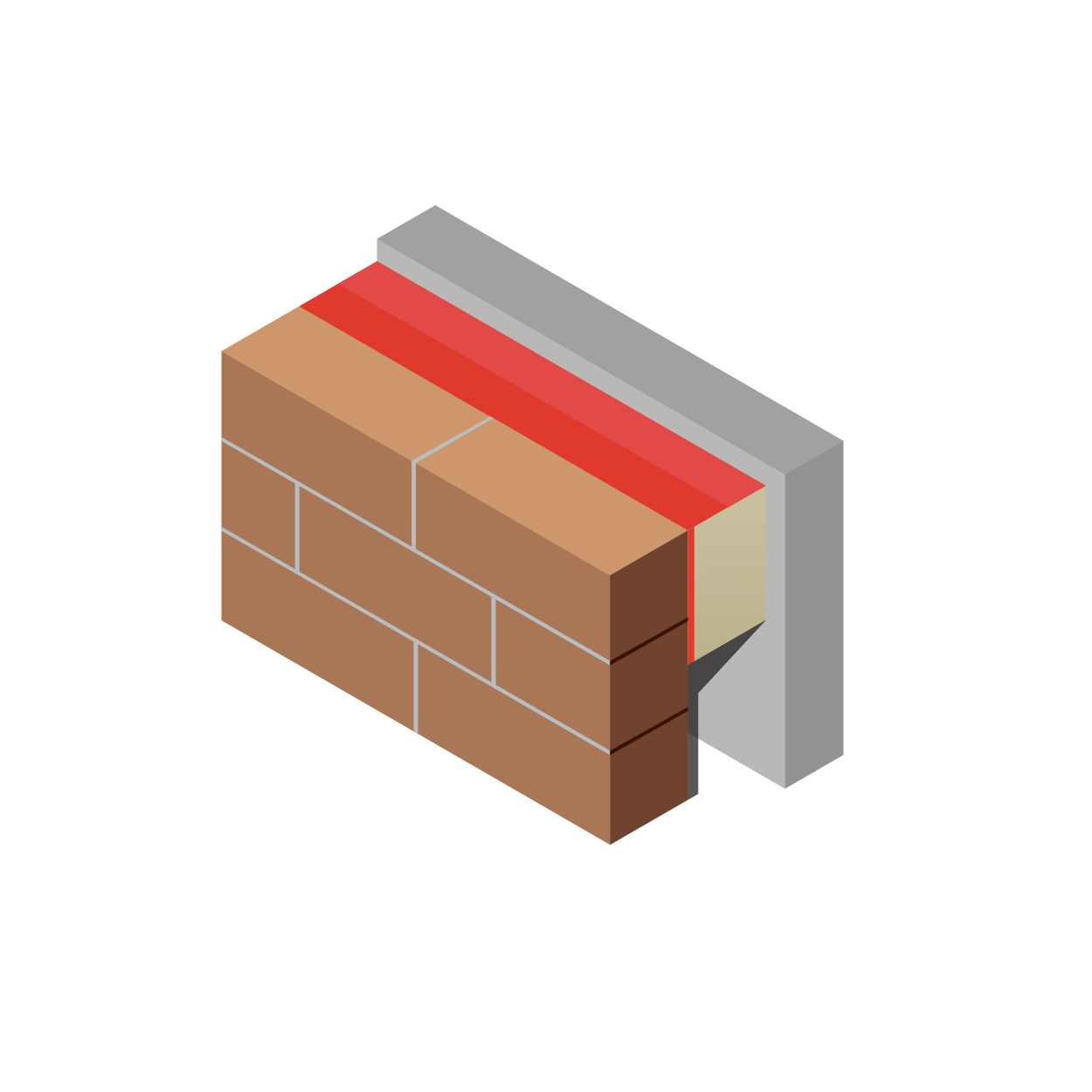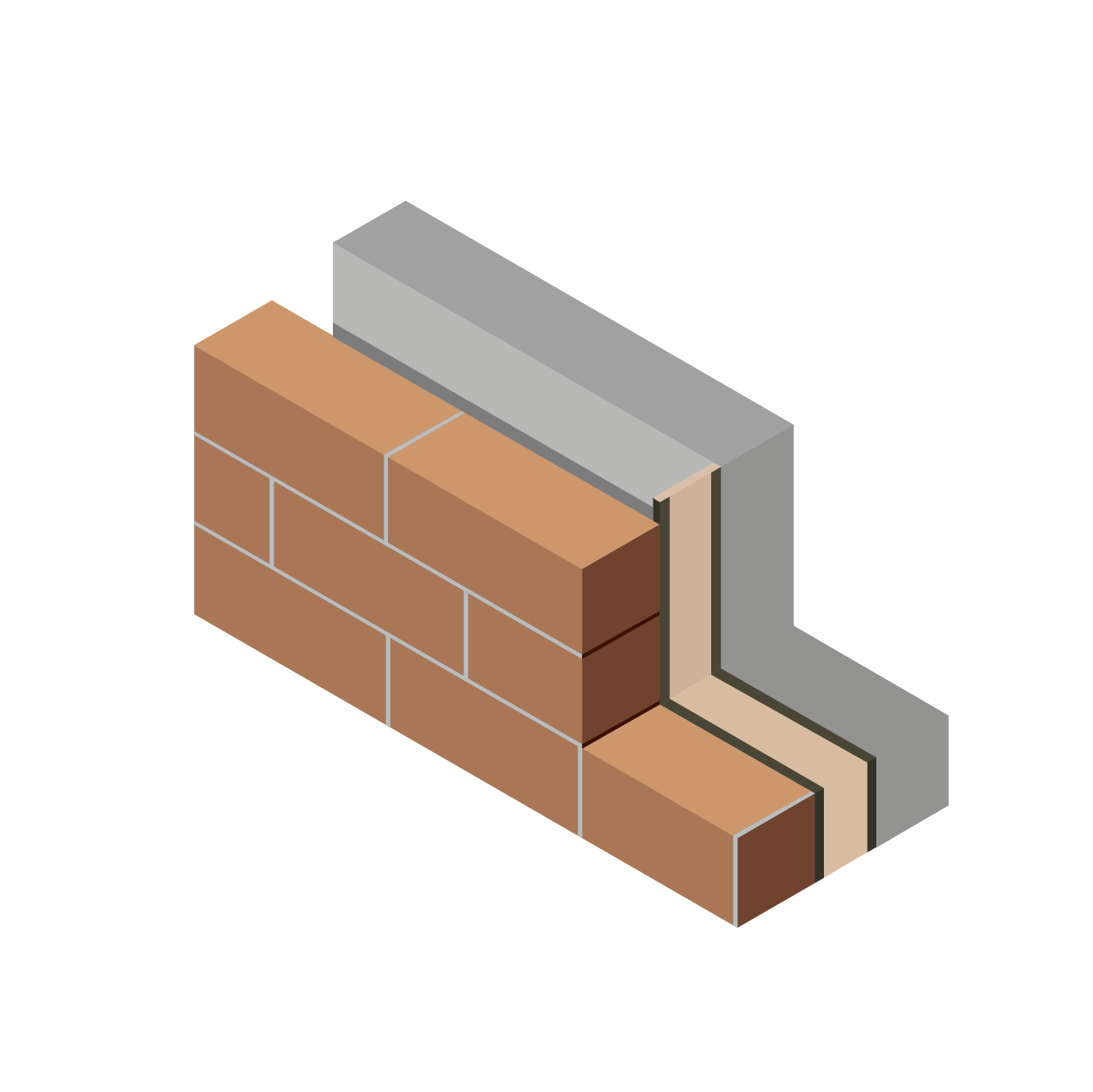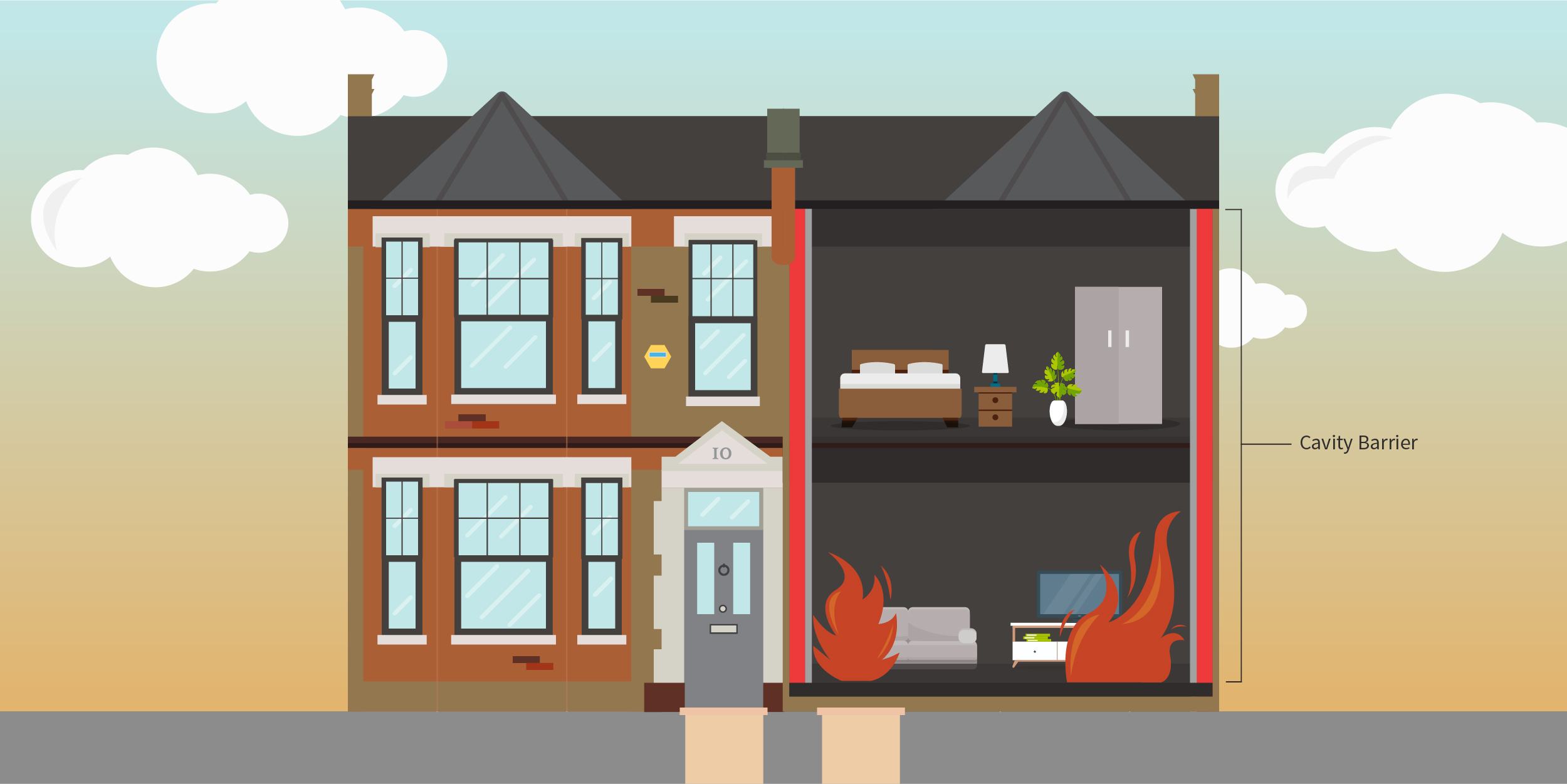A Guide to Fire Cavity Barriers in the UK
A recent report has found that a number of UK homes have been built without adequate fire protection. The report, led by Grenfell QC Stephanie Barwise of Atkin Chambers, revealed missing or improperly fitted cavity barriers in timber-frame properties.
The damning evidence was widely reported across the industry, but many homeowners admit to being uncertain about what cavity barriers are or their role in safeguarding their home.
This article will serve as a comprehensive guide to cavity barriers. We’ll be explaining what cavity barriers are, where they should be installed and why they are needed.
What are cavity barriers?
Cavities are enclosed spaces of a home that serve no purpose. They are mostly found within walls, enclosed by structural beams or other elements. This does not include the spaces within pipes, flues, chutes, ducts or conduits.
A cavity in the external wall can act as a chimney, allowing flames, hot gases and smoke to travel from one compartment of a building to another.
Cavity barriers, also known as stop socks, are blocks of fire-resistant materials that seal cavities in the wall to prevent the spread of a fire.
What is the difference between cavity barriers and cavity closers?
-
Cavity barriers

Cavity barriers are pieces of fire-resistant material that are used to seal cavities. This is to prevent the spread of fires through the cavity wall.
-
Cavity closers

Cavity closers are also used to seal cavities, but unlike cavity barriers, cavity closers typically consist of proprietary insulated closer or trim, which is not fire-resistant. Cavity closers are used to prevent external water vapour and damp from entering the cavity wall. They are not used for preventing the spread of fires.
If a cavity closer used fire-resistant material, it would be considered a cavity barrier, even if that wasn’t their design purpose.
When should cavity barriers be installed?
Cavity barriers should be installed by the house building company during construction. It is considered a mandatory fire protection element.
It is important to note that existing older buildings may not have been built to this standard or may have been built before it was a requirement. As a result, their compartmentation and fire stopping provision should be checked as part of their regular fire risk assessment process by a qualified and accredited fire safety company.
Where should cavity barriers be installed?
In accordance with ADBV2 building regulations, cavity barriers should be installed:
at the junction between an external cavity wall (except when walls have two leaves of masonry or concrete with a minimum thickness of 75mm) and every compartment floor and compartment wall.
at the junction between an internal cavity wall (except when walls have two leaves of masonry or concrete with a minimum thickness of 75mm) and every compartment floor, compartment wall, or other wall or door assembly which forms a fire-resisting barrier.
Why is cavity barrier installation important?

Cavity barriers are passive fire protection elements that prevent flames and smoke from spreading via the walls. They work by sealing off the gaps in a cavity during a fire. This is because the materials used in cavity barriers are sensitive to high temperatures and will expand when exposed to a fire.
Slowing the fire down is an essential part of protecting your home. It gives residents a greater amount of time to evacuate and reduces the amount of damage caused to other areas of your home. It also gives firefighters a greater chance of putting out the fire.
Elite Fire are one of the UK’s leading fire experts, serving London and the surrounding counties. We understand the importance of fire safety and work tirelessly to ensure that every commercial property is protected. We offer a range of fire protection services, including fire stopping, fire alarm systems and fire risk assessments. We have over 17 years’ experience and are fully versed on the complexities of fire protection and management.
When it comes to protecting your business from fire, only the best will do. Get in touch with the Elite Fire team and discover how we can protect your business.
Contact us for a free risk assessment quote Call for more information on 020 31241 632
Request a Callback
Just fill in your details below and we'll get back to you as soon as we can!

About Scutum London
Scutum London is a leading expert in fire safety and security solutions for businesses and organisations located across South East England, including London and Surrey.
From fire alarms, fire extinguishers and fire risk assessments to access control, CCTV and intruder alarm systems – and a lot more besides – we offer a comprehensive range of products and services designed to keep you, your business and your staff and visitors safe.
With decades of industry experience to call on, we’re proud to hold accreditations from leading trade associations and bodies such as British Approvals for Fire Equipment (BAFE), the British Fire Consortium, the Fire Industry Association (FIA) and Security Systems and Alarms Inspection Board (SSAIB).
If you’d like to find out more about Scutum London, get in touch with our friendly team or explore our products and services on our site.

